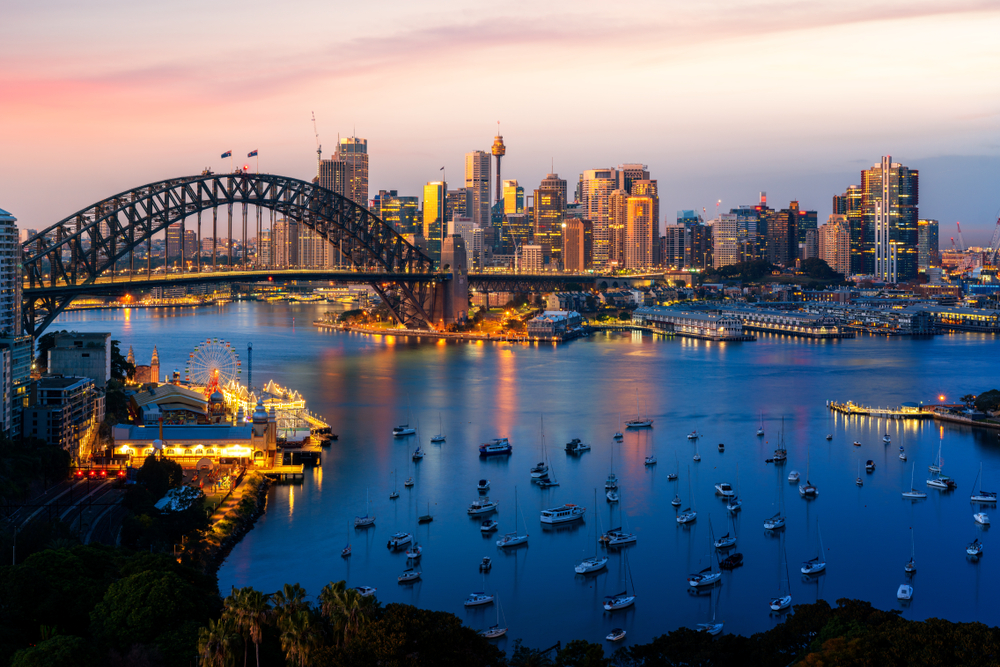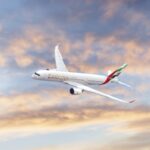
New South Wales Premier Gladys Berejiklian has indicated that international travel will resume once 80 percent of residents are fully protected, with the state “leading the nation” in the race to get Australians vaccinated.
“I want to remind everybody that September is the month when we’re asking everyone to get ready, if you’re a business start dusting off your COVID safety plan,” she said. “Make sure your employees are vaccinated so that we can get back to life at 70 per cent double dose vaccination, which we anticipate will happen somewhere around the middle of October.
“New South Wales looks forward to having our citizens enjoy international travel and also New South Wales looks forward to stepping up and welcoming thousands of Australians home.”
After criticising states such as Queensland for lowering their caps on international arrivals, NSW Premier Gladys Berejiklian has announced that her state will cut its number of returned visitors in half.
The federal government has agreed to cut the number of overseas arrivals to NSW in half, with a new weekly cap of 750 people allowed to return until the state’s vaccination targets are met. The new cap will be in effect beginning next week and is expected to last until October.
Gladys Berejiklian, Premier of New South Wales, revealed the bad news for those wanting to return to Australia from abroad but insisted that she hoped all Australians would be allowed to return by Christmas.
For that to happen though vaccination rates need to reach 80 per cent. NSW is expected to reach its first target of 70 per cent of people fully vaccinated in mid-October.
“While 70 per cent double dose gives those of us vaccinated freedoms, 80 per cent double dose allows us to look at international travel, welcoming home all Australians,” Ms Berejiklian said.
“How wonderful would it be to welcome back all Aussies who want to be reunited with their families by Christmas and NSW will step up to support that cause and that case and I stress to everybody the importance of vaccination.”
Every day, 13 passenger flights and 18 freight flights currently arrive at Sydney Airport. Last month, NSW international arrivals were reduced from around 3000 to 1505 per week, in line with a reduction in caps across the country.
“I think we’ve been offered to go down to half what we have now, which is what we’ve accepted for the next month. So, we’re doing half of our current international arrivals,” Ms Berejiklian said.
“But obviously, we’re hoping to pick that back up once we get to those high rates of vaccinations.”
Board of Airline Representatives of Australia chief Barry Abrams told the Australian Financial Review that any cut to passenger caps caused anguish among stranded Australians and left airlines scrambling to rearrange capacity.
“Ultimately, halving the already very small numbers into Sydney, down to about 107 passengers per day, does not mean anything in terms of the financial viability of flights. It will, however, cause stress and grief for passengers who are now going to get bumped,” he said.
The NSW outbreak, which had 21,108 cases as of Tuesday, was sparked by a mask-less, unvaccinated Sydney limousine driver who was infected by a foreign aircrew he chauffeured to a hotel.
According to the national reopening plan, based on Doherty Institute modelling, returned traveller intake can return to normal levels once 70% of over-16s are fully vaccinated. This equates to 3000 people per week in NSW.
Prime Minister Scott Morrisons has stated that Australians will only be allowed to travel overseas once 80% of over-16s have been fully vaccinated and that those who have been fully vaccinated will be able to quarantine from home to help relieve pressure on hotels.
Since March 2020, Australians have been prohibited from leaving the country for vacation, and those who return must pay up to $2800 for two weeks of hotel quarantine.
At current rates, the government expects to reach that target by mid-November, though overseas experience shows that rates of vaccination slow and plateau past 60% when the supply of people eager to get vaccinated runs out and the only people left are reluctant and ambivalent.
Arrivals could be allowed to quarantine at home for seven days or enter without any quarantine at all if coming from a highly vaccinated travel bubble country like the US, UK and Singapore.
“I share people’s frustration about that but what’s the answer? We need to move to home quarantine,” he said. “The answer for quarantine going forward is actually home quarantine for Australians and to the extent that we continue to have quarantine going forward then what we need is for that to be for international travellers.
Mr Morrison stated in early July that home quarantine should be safer than hotel quarantine because it requires no interaction with staff, but it does carry the risk of people failing to observe it.
Source: News.com.au



 share
share







































